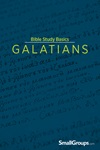Note: This article has been excerpted from the SmallGroups.com training tool called Discussing Doctrine and Theology.
The Holy Spirit is the third person of the Trinity. He comes from the Father and is sent by the Son. Symbols of the Holy Spirit include wind and breath (Genesis 1:2; John 3:8; John 20:22; Acts 2:2), water (John 4:10, 15; John 7:37–39), fire (Matthew 3:11; Luke 3:16; Acts 2:3), oil/anointing (Exodus 29:7; Acts 10:38; 1 John 2:20, 27), a seal (Ephesians 1:13–14; Ephesians 4:30; 2 Corinthians 1:22), and a dove (Luke 3:22).
Each of these symbols gives us a window into the personality and work of the Spirit.
The Work of the Spirit
- Creation
- Genesis 1:2—"Now the earth was formless and empty, darkness was over the surface of the deep, and the Spirit of God was hovering over the waters."
- Ezekiel 37:14—"I will put my Spirit in you and you will live, and I will settle you in your own land. Then you will know that I the LORD have spoken, and I have done it, declares the LORD."
- Conviction and calling
- "The Holy Spirit works in the conversion process as the agent who fosters conviction of sin. In addition to convicting people of sin, the Spirit is at work in conversion as the agent of God's call directed towards sinful humans" (Grenz, Theology for the Community of God).
- John 16:8—"When he comes, he will convict the world of guilt in regard to sin and righteousness and judgment."
- John 15:26—"When the Counselor comes, whom I will send to you from the Father, the Spirit of truth who goes out from the Father, he will testify about me."
- Adoption
- Adoption is the act whereby the Spirit makes us members of God's family.
- John 1:12—"Yet to all who received him, to those who believed in his name, he gave the right to become children of God."
- Romans 8:14–17—"Because those who are led by the Spirit of God are sons of God. For you did not receive a spirit that makes you a slave again to fear, but you received the Spirit of sonship. And by him we cry, 'Abba, Father.' The Spirit himself testifies with our spirit that we are God's children. Now if we are children, then we are heirs—heirs of God and co-heirs with Christ, if indeed we share in his sufferings in order that we may also share in his glory."
- Sanctification (spiritual growth)
- In sanctification, the Spirit of God works to make us more and more like Christ. "It is our cooperation with the Spirit in living out in daily life the regeneration, justification, freedom, and power which is ours through conversion, so that we grow into Christlikeness and service to God" (Grenz, Theology for the Community of God).
- Galatians 5:22–23—"But the fruit of the Spirit is love, joy, peace, patience, kindness, goodness, faithfulness, 23gentleness and self-control. Against such things there is no law."
- The Holy Spirit helps us in prayer (Romans 8:26–27) and illuminates Scripture for us (John 16:13; 1 Corinthians 2:10).
- Empowerment
- "When the Holy Spirit came at Pentecost and thereafter, he gave power that enabled the ministry of Christ to be carried forward. It was not power in a general sense—that is, an increment of supernatural strength that could have many uses—but power for ministry that flowed from the Father through the Son" (Williams, Renewal Theology).
- Acts 1:8—"But you will receive power when the Holy Spirit comes on you; and you will be my witnesses in Jerusalem, and in all Judea and Samaria, and to the ends of the earth."
- Romans 15:18–19—"I will not venture to speak of anything except what Christ has accomplished through me in leading the Gentiles to obey God by what I have said and done—by the power of signs and miracles, through the power of the Spirit. So from Jerusalem all the way around to Illyricum, I have fully proclaimed the gospel of Christ."
The Gifts of the Spirit
In Bible Doctrine, Wayne Grudem writes, "A spiritual gift is any ability that is empowered by the Holy Spirit and used in any ministry of the church."
The gifts of the Spirit are listed in the following passages:
- 1 Corinthians 12:8–10
- 1 Corinthians 12:28
- Ephesians 4:11
- Romans 12:6–8
- 1 Corinthians 7:7
- 1 Peter 4:11
The "charismatic gifts" are referenced in 1 Corinthians 12:8–10: "To one there is given through the Spirit the message of wisdom, to another the message of knowledge by means of the same Spirit, to another faith by the same Spirit, to another gifts of healing by that one Spirit, to another miraculous powers, to another prophecy, to another distinguishing between spirits, to another speaking in different kinds of tongues, and to still another the interpretation of tongues."
At National Community Church, we believe that the Holy Spirit continues to grant all gifts to the church. We believe the spiritual gifts:
- Are designed to build up the body.
- 1 Corinthians 12:7—"Now to each one the manifestation of the Spirit is given for the common good."
- 1 Corinthians 14:26—"What then shall we say, brothers? When you come together, everyone has a hymn, or a word of instruction, a revelation, a tongue or an interpretation. All of these must be done for the strengthening of the church."
- Should be actively sought.
- 1 Corinthians 12:31—"But eagerly desire the greater gifts."
- 1 Corinthians 14:1—"Follow the way of love and eagerly desire spiritual gifts, especially the gift of prophecy."
- Should be exercised in an orderly way.
- 1 Corinthians 14:26–33— "What then shall we say, brothers? When you come together, everyone has a hymn, or a word of instruction, a revelation, a tongue or an interpretation. All of these must be done for the strengthening of the church. If anyone speaks in a tongue, two—or at the most three—should speak, one at a time, and someone must interpret. If there is no interpreter, the speaker should keep quiet in the church and speak to himself and God. Two or three prophets should speak, and the others should weigh carefully what is said. And if a revelation comes to someone who is sitting down, the first speaker should stop. For you can all prophesy in turn so that everyone may be instructed and encouraged. The spirits of prophets are subject to the control of prophets. For God is not a God of disorder but of peace."
- Should be exercised in a context of love.
- 1 Corinthians 13:2—"If I have the gift of prophecy and can fathom all mysteries and all knowledge, and if I have a faith that can move mountains, but have not love, I am nothing."
Spiritual gifts are given for the following purposes (Grudem, Bible Doctrine):
- To authenticate the Gospel message throughout the church age
- To help those in need, thereby demonstrating God's mercy and love
- To equip people for ministry
- To glorify God
There are two main views on whether the charismatic gifts should still be practiced today. Cessationsism claims that the charismatic gifts were intended to cease after the New Testament. Continuationism claims that the charismatic gifts were intended to continue throughout history. Therefore, contemporary believers should be open to them and seek them.
For additional reading on this topic, see Across the Spectrum, Chapter 15—"The Charismatic Gifts Debate."
Being Filled With the Holy Spirit
In the Old Testament, the Holy Spirit came upon particular people at particular times for particular tasks. These included Bezalel in Exodus 31:3–5; Gideon in Judges 6:34; Samson in Judges 15:14; and Isaiah in Isaiah 61:1–2.
Ever since the early church, the Holy Spirit is no longer reserved for particular people at particular times for particular tasks. Rather, he is poured out on all who follow Christ. Joel 2:28–29 says, "And afterward, I will pour out my Spirit on all people. Your sons and daughters will prophesy, your old men will dream dreams, your young men will see visions. Even on my servants, both men and women, I will pour out my Spirit in those days."
There are several examples of the Holy Spirit being poured out on believers in the early church, including:
- The disciples. John 20:21–23 and Acts 2
- The Samaritans. Acts 8:14–18
- In Ephesus. Acts 19:1–7
—Heather Zempel; adapted from the "Theology 101" Bible study series produced by National Community Church. Used with permission.
Discuss:
- In what ways have I experienced the Holy Spirit?
- Which gifts of the Spirit have I received? How do I use them now, and how can I develop them even more?
- How can our small group experience the guidance and empowerment of the Holy Spirit on a higher level?









